Should animals be kept in zoos? Depending on your values, your answer may be straightforward. However, like any ethical consideration, it’s not as black and white as we’d like it to be.
When I became vegan, I stopped supporting any form of animal entertainment, including racing, circuses, zoos and aquariums.
It was a simple decision for me. Generating profits off the backs of animals is exploitation. So that was that.
Admittedly though, I haven’t dug deep on the topic of zoos and aquariums. When I was doing some research for this post, I was surprised to see that some vegans work in zoos, and are passionate about conservation programs for animals.
This raised my eyebrows, and I wanted to give my take on the question; should animals be kept in zoos?
Before I answer this, it’s essential to reflect on society’s fascination with zoos.
Society’s obsession with zoos
Like many, I LOVED animals as a child.
I was regularly reading books, reviewing CD encyclopaedia’s, and watching David Attenborough’s documentaries—so I could learn about animals.
Most kids’ entertainment is based on animal characters. Just walk down the aisle of a toy store, and you’ll see how many animals represent fun and love for kids.
Then you turn to film and video. How many of our favourite movies, cartoons, educational programs are created from animals? It’s clear, as a society we’re obsessed with animals!
So if there’s an opportunity to see animals in person in a safe environment, while being able to eat candy and soft drink, of course, we’re going to do it!
Some smart entrepreneurial thinkers noticed our fascination with animals and saw an opportunity to showcase them to the public in the form of a zoo.
What is a zoo?
A quick google search reveals that a zoo is an establishment that maintains a collection of wild animals, typically in a park or gardens, for study, conservation, or display to the public.
Zoos have been around for thousands of years—as far back as 3500 BC in Egypt. Kings would keep hippos, baboons and large cats. At this point, kings were keeping animals purely to feed their egos.
Public zoos as we know them today started in the 1800s, and have grown into a massive market.
A survey conducted by the World Association of Zoos and Aquariums showed that over 700 million people visit zoos and aquariums worldwide each year. 700 million people!
How do you start and operate a zoo?
I have a business mind, so naturally, I like to look at the operations of an organisation to get an idea of its needs and motivations.
So hypothetically, if you and I were to start a successful zoo together, how would we go about doing it?
Well, first of all, when you consider licensing, acquiring animals, paying zookeepers, land space, feed, research, and in-house vets, startup costs for a conventional zoo often cost hundreds of millions of dollars.
So financing would be our first barrier although it’s common practice for zoos to raise funding through donations.
Another option is to start a petting zoo, which is a small zoo with mainly domesticated animals and some wildlife, where children can pet, feed and interact with the animals.
Petting zoos are smaller scale than conventional zoos and typically cost between $10,000 and $50,000 to start.
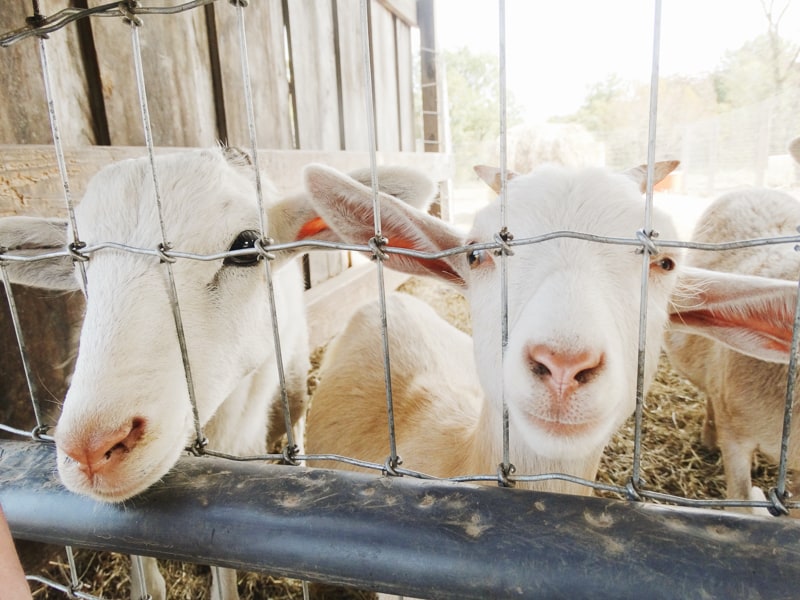
Basic rules for operating a zoo
In addition to money, we’ll need to ensure we’re following the rules of running a zoo. This varies from country to country, but let’s take the UK’s Zoo Licensing Act of 1981 as an example. Here’s what the guidelines look like:
- Mandatory participation: a zoo must legally participate in at least one activity outlined in the Act, either in conservation research, training, or breeding of wild animals in captivity.
- Promote education and awareness: Zoos must educate the public on conservation and biodiversity.
- Accommodate animals properly: The Act requires zoos to offer conditions that satisfy the biological and conservation requirements of a species. You can’t have tropical animals out in English winter, or penguins out during summer, for example.
- Escape countermeasures: Zoos are required to prevent animals from escaping, and be prepared in the unlikely event any species breaks out or is released by accident.
- Pest control: Zoos are also required to prevent the intrusion of pests and vermin.
Reference: Want to run your own zoo? Here’s what you need to know
How a zoo generates revenue
Once we have a zoo up and running, we’ll need to create enough income to cover the costs of operations and hopefully turn a profit on our efforts.
The most effective way to make money for our zoo is going to be through ticket sales. In fact, over 90 per cent of total revenue from zoos comes from gate fees!
Local admission prices where I live in Australia, range between $26 and $47, depending on whether you are underage, a student or a pensioner.
Most zoos offer group sessions for schools and work events, creating high volume packages.
Many modern zoos offer annual memberships to increase customer loyalty and create recurring revenue.
What makes a successful zoo?
So far, we know to cover costs and turn a profit in our zoo, we need to sell more tickets.
How do we do that? Advertising. Sure. But advertise what? The animals, of course.
The more exotic the animal, the more interest we can create to increase admissions.
Jurassic Park is one of the most iconic movie franchises at the box office, based on the premise of showcasing dinosaurs in a zoo. I mean, if there were a real-life Jurassic Park, it would be hard not to be interested, right? It’s because dinosaurs are unique, exotic and rare.
So we need to find exciting animals to bring in the crowds.
Since the 1970s zoos typically do not source animals directly from wildlife unless they’re rescued. Again, this varies depending on the country, and it’s not a perfect system. There’s no doubt some zoos still take animals from wildlife to add diversity to their portfolio.
The best practice is to either breed animals, or trade animals with other zoos.
Outside of bringing in exotic creatures, another approach is to create experiences for humans to interact with animals.
That’s where “meet a cheetah, or sleep with a lion” campaigns can be incredibly useful to promote our zoo.
We can also charge a premium price for these experiences, helping increase our revenue.
Hopefully, this exercise has given you an idea of how a conventional zoo operates.
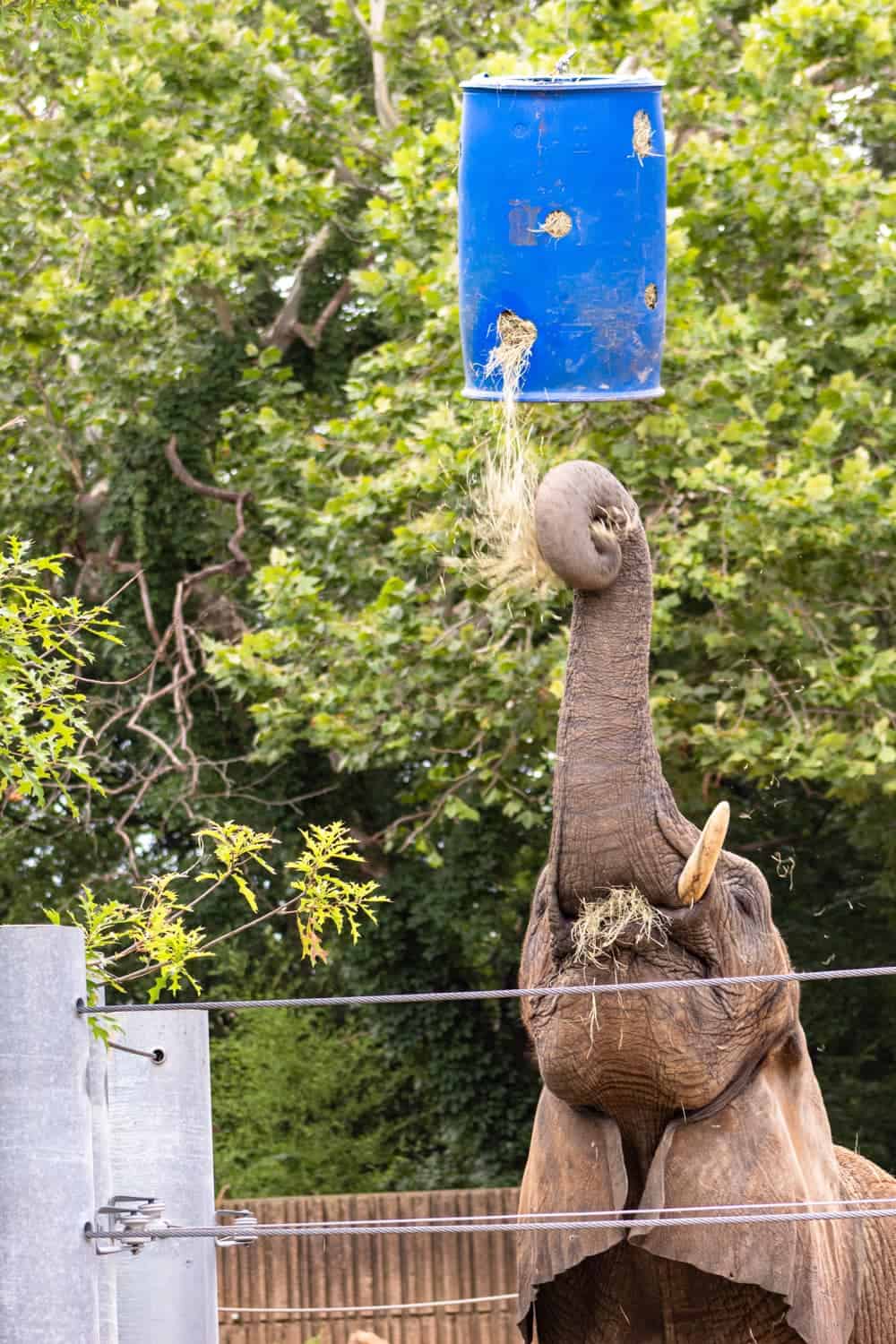
An argument for keeping animals in zoos
Before I cover the ethical considerations of running a zoo, I want to acknowledge some of the benefits of zoos.
Firstly, beyond entertainment, it’s argued that zoos help educate the public about animals, so we can do a better job of protecting them. If we know about animals, we increase the chances of loving them, and therefore fighting for them and protecting them
Secondly, zoos provide a platform for animal research. Over the past 20 years, zoos and aquariums have produced over 5000 research papers covering topics like disease transmission with humans, to ways to stop poaching of endangered species.
Lastly, zoos run conservation programs that take endangered species, breed them, and put them back in the wild to restore their populations. For example, in 1982, only 22 Californian Condors were living in the wild. Because of zoo programs, in 2019, there are now over 300 Californian Condors.
As a vegan, I can understand some of the benefits of zoos but, do I agree with them as a viable justification to keep animals in zoos? Not quite. Let me explain.
Should animals be kept in zoos? Ethical considerations
Whether animals should be kept in a zoo or not depends on whether zoos exploit animals.
Exploitation is the act of treating someone unfairly in order to benefit from their work. Someone, in this case, is an animal in zoos.
Let’s break this down, starting with whether animals are treated unfairly in a zoo system.
What do animals lose from being in a zoo instead of their natural environment?
Wildlife is meant to be in the wild. Wild animals, unlike domesticated animals, have particular needs to thrive and survive.
For instance, elephants are incredibly nomadic, social creatures who love to walk. According to Elephants for Africa, in the wild, elephants walk can walk up to 195kms a day but generally choose to walk 25kms a day. Accommodating such a movement for elephants in a zoo is impossible.
Furthermore, elephants are part of herds with up to 58 elephants. According to RSPCA, female elephants, in particular, are intensely social, often helping other females raise their babies in a shared community.
Again, this kind of behaviour is unable to be replicated in a zoo. It’s often documented that elephants are found pacing and swaying in zoos as they become distressed and bored. As a result, elephants in the wild live twice as long as elephants in zoos.
This is not surprising. I mean, can you imagine living in the same room, or even being confined to your house day in and day out?
You’d go crazy and probably wouldn’t live as long as you would if you had the freedom to venture outside of your confined space to interact with the world.
Wait, I think there’s a name for that. Oh yeah, jail!
Elephants are just one example of many when it comes to mistreating animals in zoos.
Birds are designed to migrate thousands of miles each year, and yet they’re kept in captivity in cages at zoos. Is that fair?
Study after study shows large cats, monkeys, and sea mammals going crazy in captivity. Many of these animals need to exist in their natural habitats for their development.
Chimpanzees in captivity are far more likely to show signs of mental health in the form of plucking their hair, self-biting and even self-hitting.
Animals are designed for hunting, grazing, to migrate, to fly. It’s these experiences that make an animal, an animal.
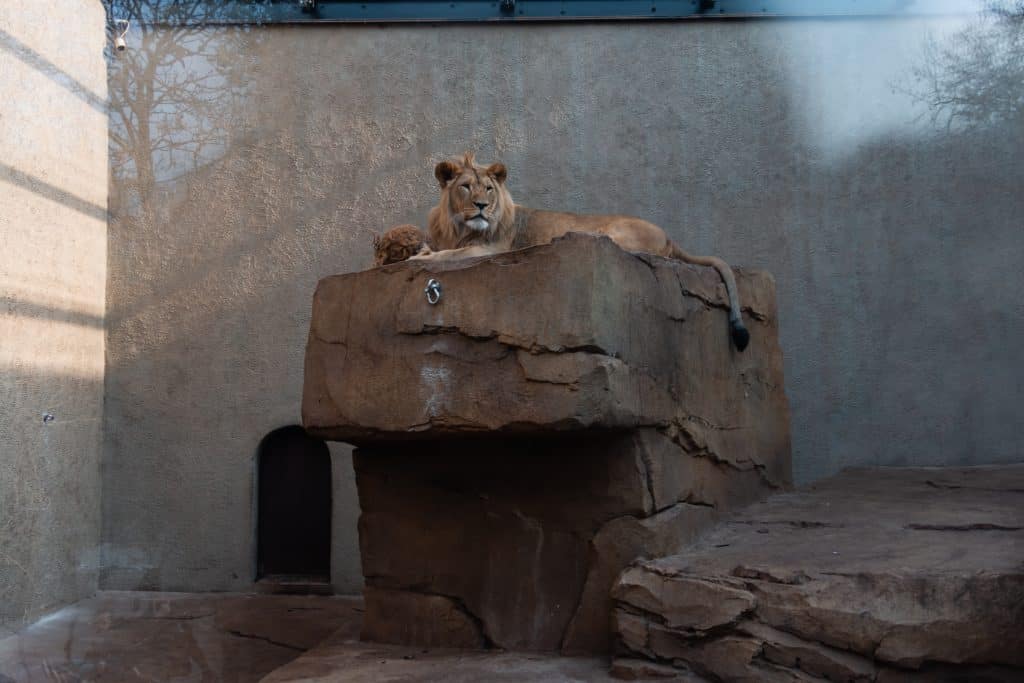
Aren’t zoos critical for saving endangered species?
We’re regularly told that the primary function of a zoo is to educate people about animals and to preserve them through conservation programs. It’s part of the legislative requirements of operating a zoo.
As I explained above, there have been a select few case studies of successful conservation programs—like the Californian Condors.
Unfortunately, humans are responsible for disrupting wildlife, contributing to the extinction of many species. We destroy homes by polluting habitats and routine logging and burning of forests. We also hunt wildlife further, adding to their extinction.
Because of our destructive behaviour, we try to recover by saving endangered species through breeding practices.
Sometimes it works, but quite often it doesn’t.
Studies have shown that animals saved and raised in captivity lack the necessary skills to survive in the wild. It’s like throwing your pet dog in the wild after living under your roof for five years. Good luck with that!
While it’s a thoughtful gesture to save a variety of species through zoos, a life in captivity is not productive to the cause. Animals need to be bred and nurtured in their natural habitats, so they don’t lose their instinctual skills to survive in the wild.
But such an undertaking is perhaps too idealistic and expensive to expect without the benefits of funding through ticket sales in conventional zoos.
What percentage of animals in zoos are endangered?
Let’s revisit the definition of exploitation.
Exploitation is the act of treating someone unfairly in order to benefit from their work.
So far, I’ve discussed how zoos keep animals in captivity, thus mistreating them. But now I want to quickly dissect whether zoos are benefiting from the work of animals.
Perhaps the most indicative exercise to determine the level at which a zoo benefits from the work of animals is to measure the percentage of non-endangered species versus endangered species in a zoo’s inventory.
If the primary purpose of a zoo is to save endangered animals, shouldn’t their entire portfolio consist of endangered animals?
Well, as it turns out, this is far from the case.
A study published in the journal PLUS ONE found that 695 of 3,955 (23%) land animals in conventional zoos are endangered. That means 67% of the animals held in captivity are not threatened.
If such a large portion of zoo inventory is not threatened, why do zoos continue to source these animals? What’s the motivation?
One could argue that the motivation is about educating the public about animals. But even then, is it justifiable to hold animals in captivity for the sake of education, when such information is available through non-exploitative methods?
The only conclusion I can draw from this ratio is that zoos are ultimately financially benefiting from the work of animals. I can’t see any other way around this. It’s exploitation. And that’s why I believe animals should not be kept in zoos.
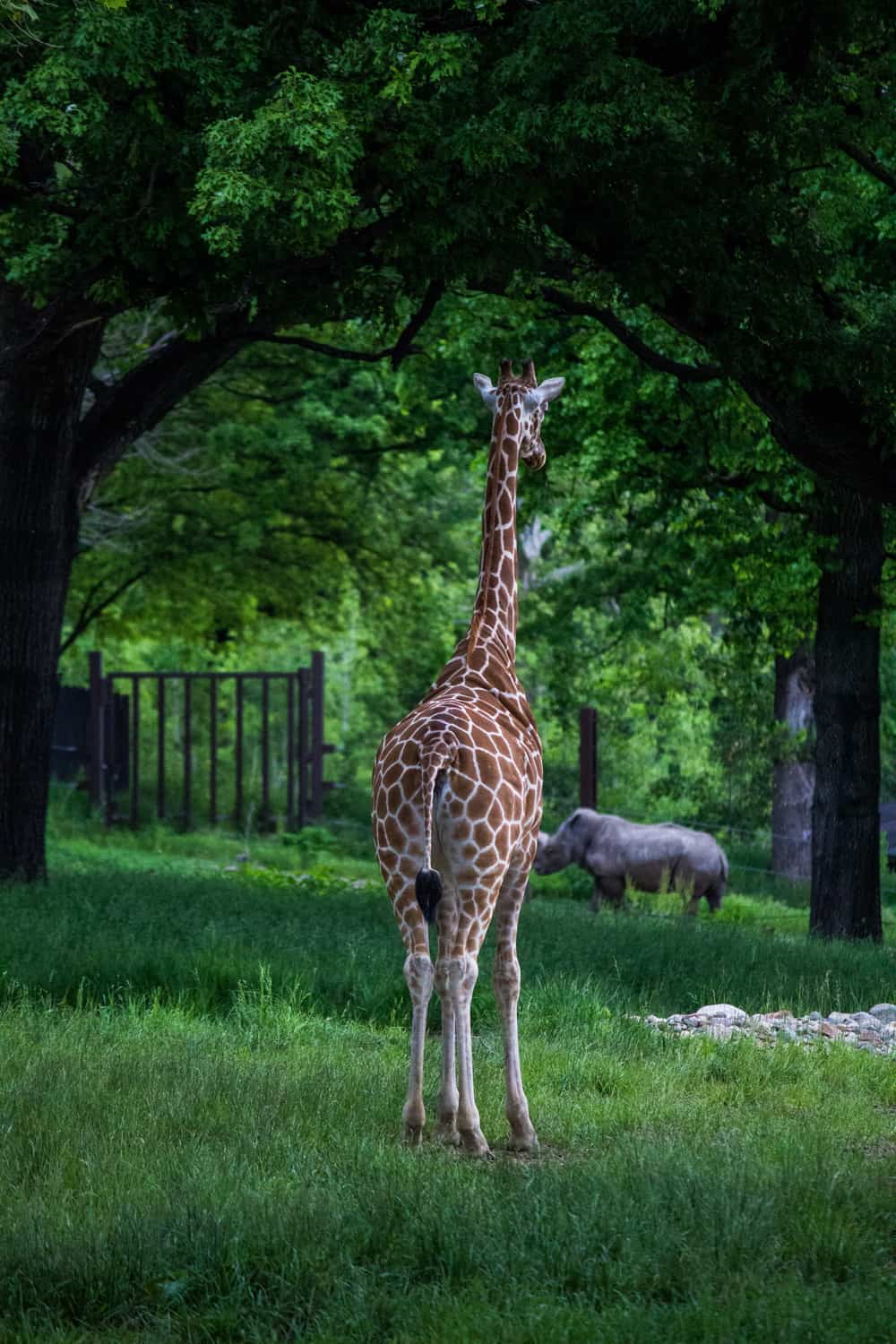
Alternatives to going to the zoo
So if zoos are exploiting animals, but we still want to find ways to connect with them, and to save them, what can we do? Here are three alternatives to going to a zoo.
1) Animal Sanctuary
Animal sanctuaries rescue farmed animals from the food and entertainment industry and offer them food and shelter.
Donations usually support sanctuaries and offer the public regular visits and opportunities to help the animals with whatever skills they have.
Visiting sanctuaries may also help us feel more connected with where our meat comes from and therefore preventing the consumption and exploitation of farmed animals.
Now, are all sanctuaries perfect? No. In many cases, people running animal sanctuaries are so selfless that they end up taking on too many animals which they can’t support effectively.
That’s why it’s more important than ever to support these organisations and, more importantly, reduce or stop our meat and dairy consumption.
2) Wildlife Rehabilitation Centre
Wildlife Rehabilitation Centres rescue injured wildlife and hold animals captive while they get veterinary care—before being returned to their natural habitat.
The goal of these centres is to get animals back into the wild as quickly as possible, with the least amount of human intervention.
Centres are generally open to visitors, and the types of animals you’ll see will be based on local wildlife. As it should be. There are no African Elephants in Australia like you’d find in a zoo.
3) Challenge yourself to go on adventures in the wild
One of the most magical ways you can connect with animals is organically seeing them when you’re in nature.
Humans are also animals that are designed to be in nature with other animals. Think about how much indigenous cultures know about their local wildlife. It’s because they lived together in the same environment.
Unfortunately, with technological advancements, we’ve become increasingly disconnected from nature to the point where it’s scary or risky to be immersed in the environment.
Have you tried walking around your neighbourhood barefoot? I have. It’s terrifying. What should be a natural movement, is riddled with anxiety looking out for glass, insects and anything that would present potential harm.
How many of us go deep in the woods when hiking? Or go sailing in the ocean? Or climb trees?
Sure, there’s a small segment of us that love these activities. But for the majority, these experiences are foreign.
So if we want to see wildlife, we can. It starts with pushing ourselves past our comfort zone and seeking out experiences in nature.
Please do so with care, of course. See, there I go again!
What do you think? Should animals be kept in zoos?
Okay, I’d love to hear from you now. Maybe you work in a zoo, or you know someone that does.
What are your thoughts on keeping animals in captivity as part of a business? Is it ethical? Why? Why not?
Let me know what you think in the comments below.
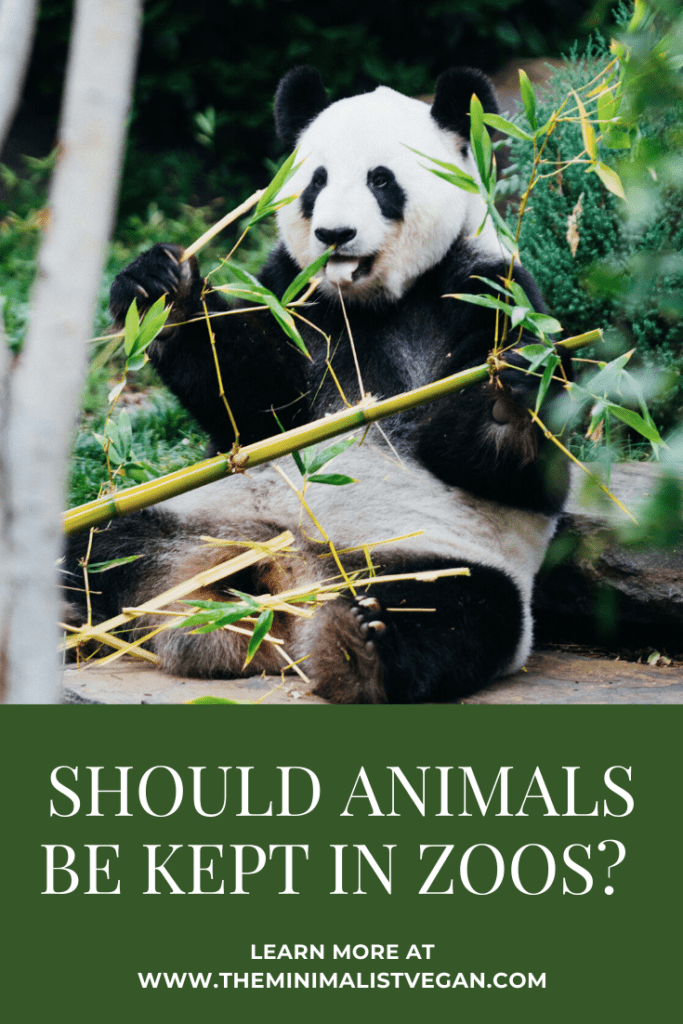

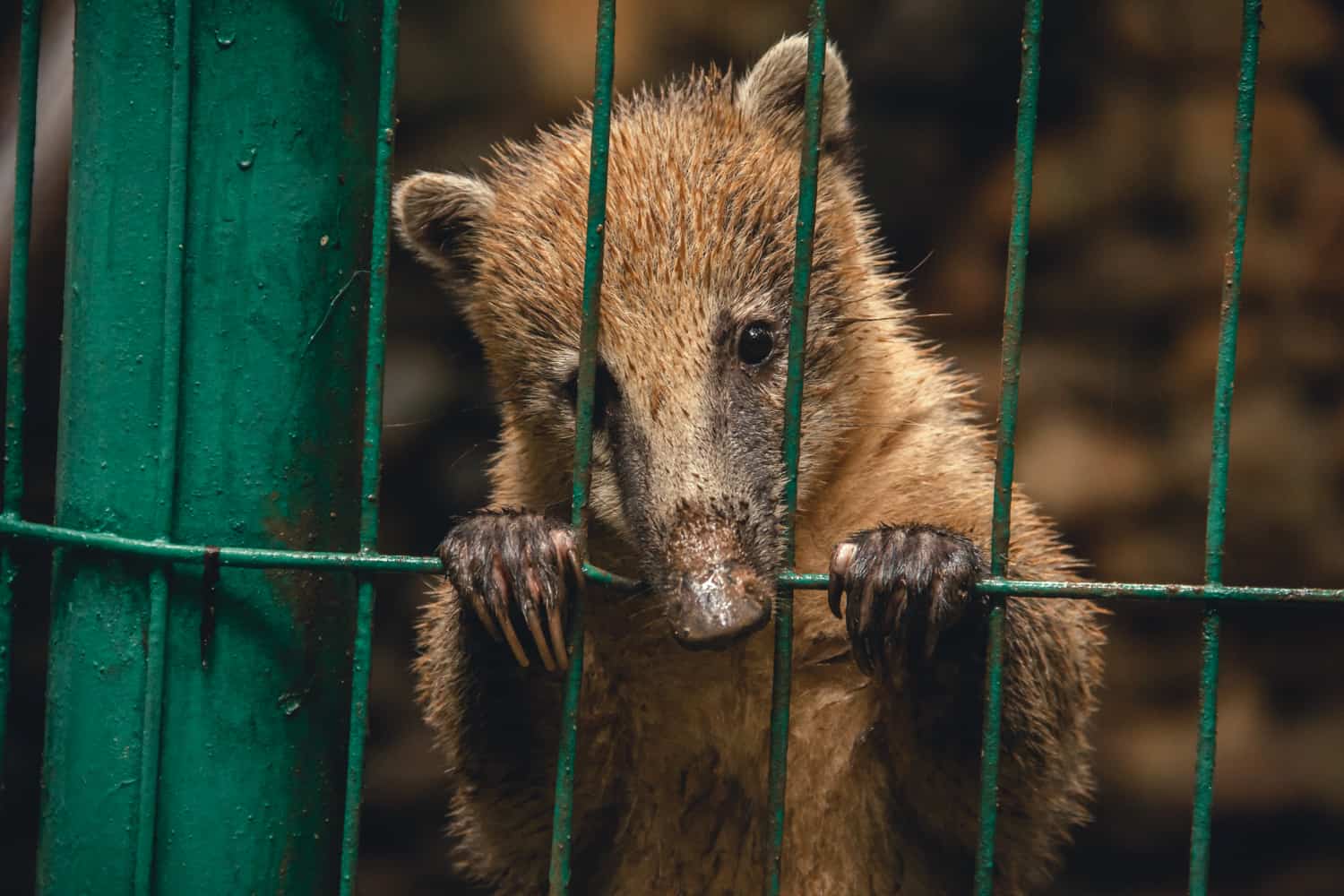
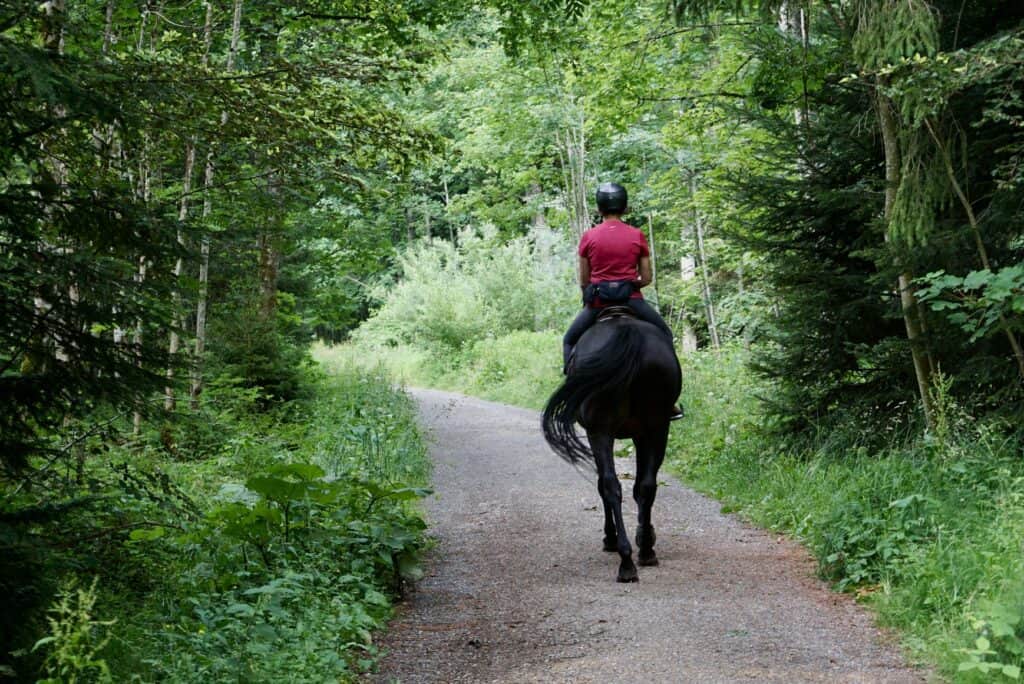
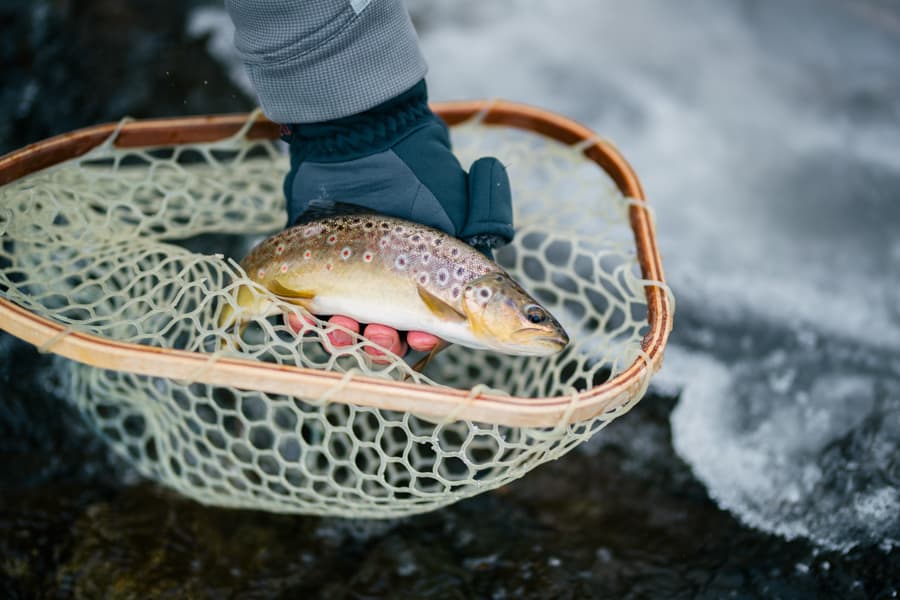


I am half and half, please just hear me out here. I agree with animals (including elephants) in good zoos as long as they are being properly taken care of as the majority of species live longer in good captivity than they would do in the wild and they are far safer than their wild cousins are as they are far less likely to be hunted, shot, run over, trapped in snares, caught for the illegal wildlife trade, die from preventable diseases etc. There are good zoos but then there are also a lot of bad zoos, such as the one Mali the elephant was kept in and many others. Admittedly, I can’t comment on zoos in the USA or Canada etc as I have never seen them for myself but where I live in the UK, Virtually all the zoos really care deeply about their animals (I have seen this first hand) and have made tremendous progress for elephants and other animals. Please look at these links if you don’t believe me and say that good zoos haven’t helped animals in captivity and in the wild in some way: https://www.bbc.co.uk/news/science-environment-60222464
https://www.bbc.co.uk/news/10538826
https://www.bbc.co.uk/newsround/65410327
All these things above wouldn’t have been possible without good zoos. Also, don’t forget that Jane Goodall seems to support good zoos here: https://news.mongabay.com/2016/10/jane-goodall-on-zoos-and-tech-as-conservation-tools/ and here: https://news.janegoodall.org/2016/06/19/tragic-death-harambe-raises-questions/ . A quote from herself: “6. ‘I’m always being asked again and again, “Jane, what do you think of zoos?” Groups who believe all zoos should be closed clearly have not spent the time I have out in the wild. They haven’t seen the threats destroying chimpanzee habitat; they don’t understand what it’s like to watch a chimp struggle, wounded and lame from a wire snare. But I do. I remember sitting with a group of chimps in an American zoo once. They had a really nice enclosure and I was watching the adults groom each other and the young ones play. As I watched, I remember thinking of the chimpanzee groups I had seen in the wild who are living day to day in fear. Put yourself in the position of chimpanzees for a minute. A chimp living in a zoo where people know them, love them, understand them and protect them or a chimp in the wild who may have lost their mother the week before, watching another member of the troop as they’re wounded by a bullet from a poacher. Which would you rather be? I’d rather be in the group in the zoo. And certainly in the group here at Monarto Zoo; now that’s a good life for a chimp.” In this article here: https://www.adelaidezoo.com.au/jane-goodall-quotes-2019/ and even David Attenborough and great conservation charity Fauna & Flora agree with and are sponsors of good zoos too. As David Attenborough once said “in an ideal world, we wouldn’t need zoos” but sadly, we don’t live in an ideal world. We live in a world where nature and wildlife is sadly disappearing all around us, human overpopulation is growing and the only places one day you will be able to see animals if we all don’t change soon enough would be in a good zoo, such as what it was like for partial snails (who were extinct in the wild not long ago), if it wasn’t for good zoos breeding them, releasing them and saving them from extinction, they would be gone forever! Other animals that would also have been gone forever if it wasn’t for good zoos also include the Scimitar oryx, the Przewalski’s wild horse, Socorro Dove, Wyoming Toads, condors and so many more. You cannot “Tar all zoos with the same brush”! But I will agree that yes, sadly there are zoos out there that are bad that only care about profit and don’t care about the animals at all, such as Copenhagen zoo but not all zoos are bad! Not all zoos still have 19th century conditions for animals anymore! Good zoos are now for research, education and conservation, not pure entertainment anymore! All zoos need money to properly care for their animals and help in conservation, that is true but then again, sanctuaries also need money to properly care for their animals too, so isn’t that exploitation in a way too? There are also zoos that rescue animals from awful situations and give them a good, species specific home like a sanctuary does here:
https://www.theglobeandmail.com/world/article-a-refugee-bear-from-a-bombed-out-ukraine-zoo-finds-a-new-home-in/
There are multiple discussions around all this:
https://www.treehugger.com/zoos-and-endangered-species-conservation-1182068
https://www.theguardian.com/world/2020/feb/02/zoos-time-shut-down-conservation-education-wild-animals?sf229434080=1
https://a-z-animals.com/blog/discover-amazing-us-zoos-with-elephants-and-best-time-to-visit/
One very interesting thing I found was that PETA (people for the ethical treatment of animals) claim to want to shut down all zoos yet there is a link here where they actually worked with accredited zoos and sent some animals rescued to accredited zoos. Why would an organisation so against zoos send animals to an accredited zoo of they claimed all zoos are bad? The link is here:
https://plantbasednews.org/culture/ethics/animals-rescued-lawsuit-shuts-down-maryland-roadside-zoo/ and the text reads: “Now, Courthouse News reports that the zoo is totally empty. Through another legal settlement, PETA was given permission to relocate all of its animals to sanctuaries and accredited zoos.”
Thank you – I also feel torn about this topic. I categorically agree that animals should not be exploited and the information you presented certainly suggests that most zoos in some form or other will be responsible for this. In particular I found the point about animals that are not endangered being a large percentage of the zoo animals a display of this exploitation.
Where I am torn is the aspect of conservation. No doubt there is exploitatation of the non-endangered animals. I presume having these animals however helps generate revenue that then can also be plugged into conservation. Does this make it right however?
Equally – if I could wish for a perfect world, there would not be any endangered species in the first place, as first and foremost we would be concentrating on all the human impact we are having that makes us responsible for this as a race in the first place.
Unfortunately here we are though – in a world where we have driven a multitude of animals to the point of extinction. So do we accept that endangered species will more than likely become extinct, or do we plug some money into conservation with zoos?
Ultimately I think that working and supporting sanctuaries, and supporting organisations that rally to address the human impact we are having on the world is probably where I will put my efforts and money.
I came to read this article as I was not sure if it was ok for me to buy tickets for a ‘light creatures’ show at the Adelaide Illuminate festival. After reading this , I feel it would not sit right with me if I went so I have decided against it.
Hoping and wishing for a world where we all are connected to nature and are looking after all our animals.
Thank you for this article.
Thanks for the article! I’m writing an essay on this, and it really helped!
Glad it helped! All the best with your essay.
I have to write an argumentative essay about why animals should or should not be kept in zoos. It was very interesting hearing other people’s thoughts, and I definitely agree with you. I went to a zoo yesterday to see how things worked, and I feel like the animals would be happier and more comfortable in the environments that they belong in.
Yeah, it really brings things home when you visit a zoo. Good luck with your essay. I’m sure it will be interesting!
Without zoos, many animals would be extinct at this point. There are many great zoos in the world doing excellent work in conservation. There is always a place for a good zoo, the problem is the bad zoos give them all a bad name. Without zoos in the future, a good majority of animals will go extinct. Animals typically live longer healthier happy lives in the great zoos.
animals should be not kept in a zoo
I couldn’t agree more. They don’t work for us.
Tommorow we are going to write an persuasive essay, I chose the topic: Should animals be kept in zoos and circus? This article help me a lot! Thanks so much! I also doesn’t think that animals shouldn’t be kept in captivity because:
Animal’s mental health (Elephant walk 25km a day, zoochosis)
Behavioral probs (They get depressed, psychologically disturbed, frustrated, they harm each other, become ill, go hungry, and are forced to endure extreme and unnatural temperatures)
Loose freedom (Bird clip wings, can’t migrate)
Lost unique characteristics (Forced to perform tricks because afraid)
Children learn animal okay to be in cage
Animals live longer in wild (more happy, already adapted)
Animals experienced cruelty during performance (Elephant ride people hit elephants with axe, perform because they’re afraid of what will happen if they don’t.)
Organism fairness (animal entertaining is only for human)
And a lot more!
Thanks so much!
😀
Hi Nicole, your essay topic sounds very interesting! I especially like the point of children thinking it’s okay for animals to be in zoo cages. I may have to update this post 🙂 I’m glad you found this article to be helpful, and thank you for taking the time to comment and add your ideas.
Thank you for this article! I think that animals shouldn’t be kept in zoos. Zoos do not provide natural habitats, and that zoos put unnecessary stress on animals.
You’re welcome, Joshua, and nicely said. Thanks for sharing your thoughts on zoos 🙂
Thanks for your well balanced approach/argument. I have to admit that I have struggled with this and the possible benefits that zoos provide. Plus, I loved going to them both to connect with animals in some way and the be in some kind of nature since the grounds are sometimes lovely. Also, in more urban areas such as I am now, zoos provide some of the only means to make those connections. However in the time since i have moved from being a vegetarian to being vegan, I have found my views have changed and I know longer feel that zoos are acceptable. Though I do wonder what one then does with wild animals that do need to be rehabilitated as most wildlife rehabilitation places I know of deal with native animals rather than larger marine and exotic animals. Also, I continue to question whether animal sanctuaries are actually not another form of a zoo. Thanks again for the post.
I wonder if you would consider taking a similar looking at animals that are used to assist people such as guide dogs and monkeys.
Hi Jacquie, it sounds like we’re on the same page. I wonder the same things when it comes to exotic wildlife, but I’m sure some services provide support. How it gets funded is another question. But I think it’s the question we should focus on, instead of lumping it together with the often exploitative institution of zoos. I do feel that sanctuaries, while far from perfect, are different from zoos, in the sense that their business model and the kind of animals they keep is entirely different.
Hmm, I never thought about animals who are used to assist humans. I’ve put it on my list to investigate. Thank you for the suggestion.
Thanks for this article! I‘ve always had the same conflicting feelings about zoos, but ultimately agree with you about the ethical issues.
I volunteer at a wildlife rehab center that will nurse and release injured wildlife if they can be released; if they’re not able to be released because of the extent of their injuries, they live permanently at the center. It’s amazing how many people have never seen common animals and birds in our region of the country! It’s a great opportunity to educate people and get them excited to go on their own adventures outdoors.
Hi Cece, it’s so refreshing to get insights for someone who has experience at wildlife centres. You’re right—there are so many beautiful animals to see within your area. Thank you for volunteering and helping animals.
Very interesting read. I agree completely. In the end, as you also state, it is really very simple. No animal should be kept in captivity unable to live the life they could and should be living. And also, it is truly the most magical and exciting when you encounter an animal in the wild. <3
Thanks, Sarah! You’re so right. Even just this morning Maša and I relocated a lost frog—it doesn’t seem like a big deal, but it was a magical experience to interact with a wild animal in the yard.